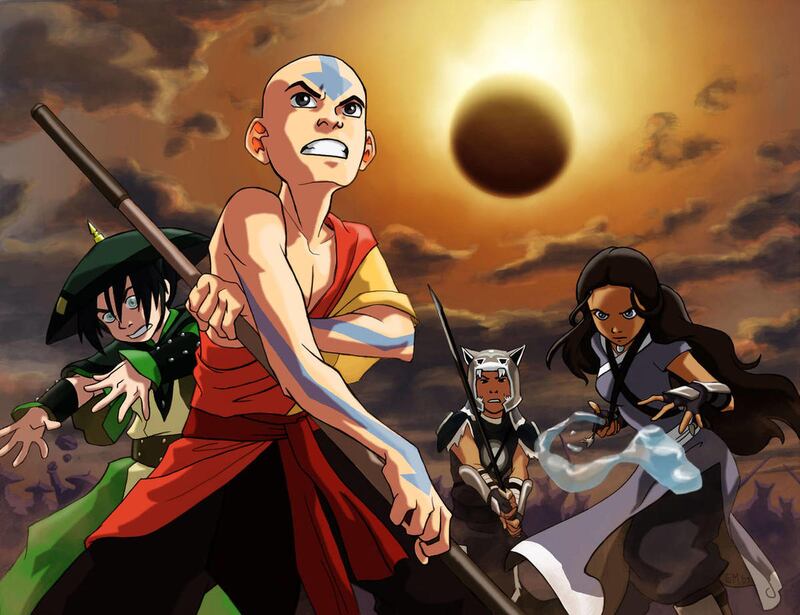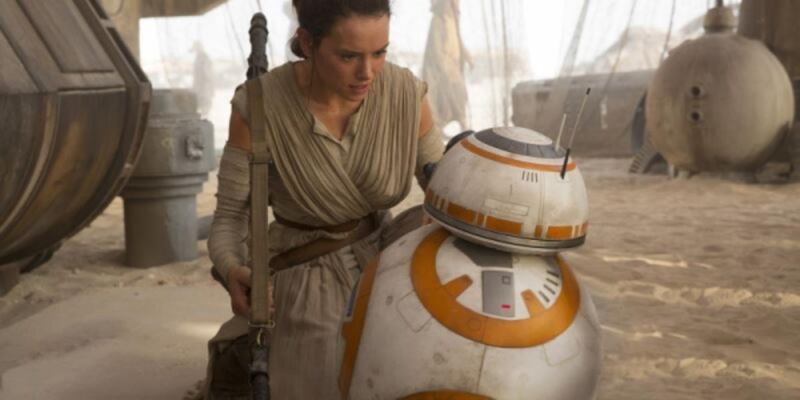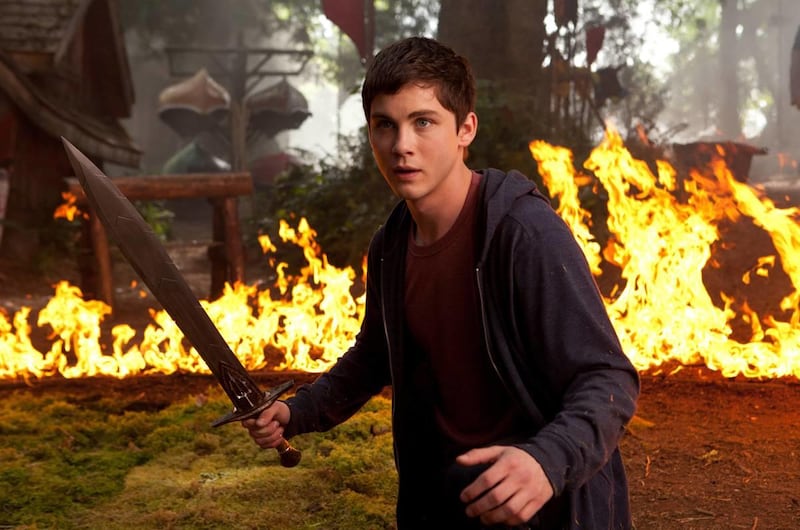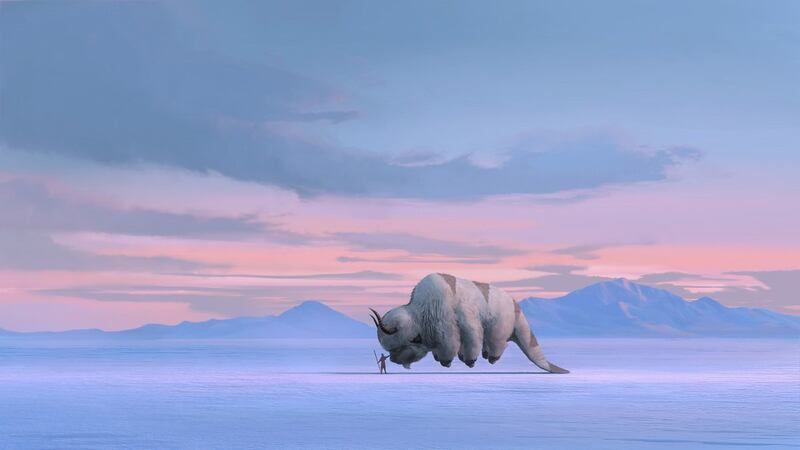SALT LAKE CITY — When Netflix first announced it would be making a live-action remake of “Avatar: The Last Airbender,” many fans were cautiously optimistic.
Fans of the popular animated Nickelodeon series had been burned once before by a live-action adaptation, a 2010 film from director M. Night Shyamalan that was near-universally reviled by both fans and critics alike (“The Last Airbender” movie has a 5% critic score and a 30% audience score on Rotten Tomatoes, compared to a 100% and 98% scores for the animated series). But the upcoming Netflix version had one crucial difference from the movie: the creators of the original series, Michael Dante DiMartino and Bryan Konietzko, would be involved.
Or, at least, that was the plan. When DiMartino and Konietzko announced earlier this month that they were leaving the Netflix series due to creative differences — and Netflix made clear it intended to continue making the show without them — many fans were both upset and very, very worried. It didn’t take long before #CancelNetflixATLALiveAction was trending on Twitter, with fans afraid that the Netflix series was on track to repeat the movie’s mistakes.
The question that seemed to bother most fans was whether the Netflix show could be a true adaptation without the creators being involved. In order for an adaptation to be “good,” does it need the original creator — or at least his or her blessing? And whose opinion matters most when it comes to an adaptation — the creator? The studio who owns the rights? Or ultimately, the fans themselves?
Neither DiMartino or Konietzko went into detail about why they chose to leave the show. However, they both made it clear the decision was because of a disagreement with Netflix about the direction of the series, which Konietzko wrote he believed was not “in line with the spirit and integrity of ‘Avatar.’”
“When Netflix brought me on board to run this series alongside Mike (DiMartino) two years ago, they made a very public promise to support our vision,” Konietzko wrote in an Instagram message to fans. “Unfortunately, there was no follow-through on that promise.”

DiMartino and Konietzko are not the first creators to clash with a studio over an adaptation of their work — and with adaptations growing ever more popular in Hollywood, they’re not likely to be the last, either.
Even with less movies appearing in theaters in 2020, a significant number of them have been adaptations — from “Dolittle” and “Call of the Wild” earlier this year to the upcoming “Death on the Nile” and “Dune.”
Why are adaptations so commonplace in Hollywood? And when creators of an original work disagree with a studio about the way their work is adapted, like DiMartino and Konietzko, are fans right to be worried?
Why are adaptations so popular in Hollywood?
Hollywood has adapted books and other content into movies since nearly the beginning — think “Gone With the Wind” or “The Wizard of Oz.” Adaptations are both a safe and a profitable option for studios because they know the existing work has a fan-base, which gives them a built-in audience.
“Most of the industry believes that the way to attract big, loyal audiences is to tell stories that viewers already know they’re interested in (because they liked the previous movie, or the book or whatever), starring actors with whom they’re already familiar,” film critic Alissa Wilkinson wrote for Vox earlier this year. “Hollywood believes in the big swing — but not, in the end, in taking risks.”
Acclaimed filmmaker Martin Scorsese made headlines last year for criticizing Marvel and superhero movies, but in a New York Times op-ed, Scorsese clarified his larger point, which is that franchises and remakes are taking over Hollywood at the expense of films that he considers “art,” because they are considered a safer (and more financially profitable) choice.
“That’s the nature of modern film franchises: market-researched, audience-tested, vetted, modified, revetted and remodified until they’re ready for consumption,” Scorsese wrote for the Times.
That being the case, when it comes to adaptations, Hollywood often prefers to take the safer route, which is to try to change the work to appeal to as big of an audience as possible, rather than try to appeal to what seems like a more niche fan base, according to Dr. Kyle Bishop, a professor of English at Southern Utah University who teaches courses in film and television studies, in an interview with the Deseret News.
The business, rather than creative, mindset has grown in Hollywood, as more studios are beginning to be run by CEOs from other industries rather than filmmakers or actors, says Bishop. In this mindset, screenplays and story concepts are often treated like “commodities,”
For example, George Lucas sold the rights to “Star Wars” to Disney in 2012. Even though he no longer technically owned the franchise, Lucas still expected Disney to use his story ideas for its sequel trilogy, according to The Hollywood Reporter. But Disney opted not to use his ideas, and Lucas was critical of the storyline of “The Force Awakens” after it was released.

Of course, Disney was not contractually obligated to use any of Lucas’ ideas, and Lucas himself made the decision to sell the rights to “Star Wars.” But as the creator of the “Star Wars” universe, he was disappointed that his stories were not used.
Bishop said that the attitude of Hollywood studios toward purchasing story concepts or screenplays is like buying a new car. Once the car is purchased, the new owner is free to paint the car, buy it new tires, or make whatever changes they want to it. And of course legally they are able to do so.
But for original creators who see changes being made to their work without their input — or, as “Percy Jackson” author Rick Riordan described the movies based on his books, “my life’s work going through a meat grinder” — it’s not easy.
”His entire self was wrapped up in the fact that he was responsible for what was perhaps the greatest mythology of our time,” former Disney CEO Bob Iger wrote in his memoir about Lucas, according to THR. “That’s a hard thing to let go.”
What rights do creators have when their work is adapted?
The “Percy Jackson” movies are a prime example of an adaptation that went wrong, both for the author of the original books as well as for fans of the series.
“The Lightning Thief,” the first of two movies that were adapted from Riordan’s bestselling series, was released in 2010. Both it and its sequel — “Sea of Monsters” — underwhelmed both critics and fans of the books.
“I think most readers will prefer the movie in their imaginations,” film critic Moira MacDonald wrote in a review of “The Lightning Thief” for the Seattle Times.
Riordan was concerned about the adaptations even before the movies were made, after reading the first script for “The Lightning Thief.” In 2018, Riordan shared emails on his website that he sent to the film’s producers about his concerns, which included aging up the main characters (from 12 years old in the books to 17 years old in the movies) and using stronger language than was in the books, which are marketed to middle-grade readers.
But ultimately, the producers chose not to listen to Riordan’s concerns, even after he offered to rewrite parts of the script himself.

“There is a widespread myth (ha!) that authors have much more control over movie decisions than we actually do,” Riordan wrote on his website in 2018. “Even the most powerful authors (yes, the ones you are thinking of right now) have WAY less influence and control than you think they do.”
We’ve seen this play out in the comic book industry. For example, HBO recently adapted “Watchmen,” a graphic novel by Alan Moore that was published by DC Comics in the 1980s. Since then, DC has held onto the rights for “Watchmen” and prevented them from returning to Moore and the comic’s artist, Dave Gibbons, according to The Guardian.
DC made a movie version of “Watchmen” in 2009 and a series of prequel comics in 2012, both of which were disapproved of by Moore, according to Vulture. Damian Lindelof, the showrunner of HBO’s “Watchmen” series, was both aware of and troubled by Moore’s disapproval of adaptations before ultimately deciding to work on the show.
“What are the ethical ramifications of this even existing at all when I completely and totally side with the creator?” Lindelof said in an interview with Vulture last October. “Acknowledge that the creator has been exploited by a corporation? Now that very same corporation is basically compensating me to continue this thing.”
As for Moore himself, he appears in some ways to have put “Watchmen” behind him.
“I no longer own copies of these books,” Moore once said in an interview, according to Forbes. “And, other than the earnest creative work that I put into them at the time, my only associations with these works are broken friendships, perfectly ordinary corporate betrayals and wasted effort.”
Does the creator always know best?
But just because a creator disagrees with the way that their work is interpreted, does that mean that an adaptation is bad or wrong?
Some movies that are now considered classics were adaptations of works that were disliked by their original creators.
P.L. Travers, the author of “Mary Poppins,” famously hated the Disney movie based on her books and even cried after seeing it at the premiere, according to The Washington Post. In particular, she felt as though the singing and dancing “trivialized” both the story and the character of Mary Poppins.

“It is as though they took a sausage, threw away the contents but kept the skin, and filled the skin with their own ideas, very far from the original substance,” Travers once wrote in a letter, according to the Post.
Yet Disney’s “Mary Poppins” won five Academy Awards after it premiered, and continues to be beloved by many. So how much weight should be placed on a creator or author’s opinion?
As adaptations continue to grow more and more popular, it’s a question that fans will have to continue to wrestle with. In the case of shows like “Watchmen,” as HBO showrunner Lindelof pointed out, is there an ethical dimension to working on or enjoying a show that was made without the original creator’s consent?
For fans of “Percy Jackson,” it will soon be easier to disregard the movie versions entirely — Riordan announced earlier this year that a television series based on the books was in the works for Disney Plus, and he assured fans that this time, he would be “involved in person in every aspect of the show.”
But according to Bishop of SUU, while artist intent is “interesting,” interpretation of a work is best left to the fans.
“Ultimately, ownership of a property on some level is in the hands of the person who is currently engaged with it,” Bishop said. “So when when the book is written, it’s all the artist’s. When it’s adapted, then it’s the adapters who own it. And when it’s filmed, it’s the director, and when it’s released, it’s the studio. But when it’s watched, it’s the audience.”
So when Netflix releases its adaptation of “Avatar: The Last Airbender,” whenever that is, it will be up to the fans to decide whether the new series is true to their experience of the original. Like Lucas or Riordan, the creators of the original show may choose to give their opinion on the finished product, but at that point their role in the process is already finished and their views bear less weight, according to Bishop.
“And who knows? Netflix’s live-action adaptation of Avatar has the potential to be good,” “Avatar” creator DiMartino wrote in an open letter to fans earlier this month. “It might turn out to be a show many of you end up enjoying. But what I can be certain about is that whatever version ends up on-screen, it will not be what Bryan and I had envisioned or intended to make.”


